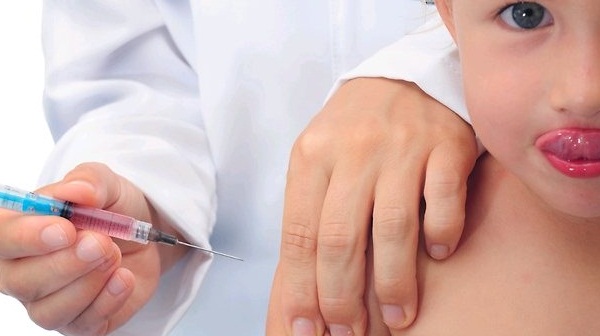What's in this article?
What is Chickenpox?
Chickenpox is a common illness that mainly affects children and causes an itchy, spotty rash.
Most children will catch chickenpox at some point. It can also occur in adults who didn’t have it when they were a child.
It’s usually mild and clears up in a week or so, but it can be dangerous for some people, such as pregnant women, newborn babies and people with a weakened immune system.
Kids can be protected by getting the vaccine, which greatly reduces their chances of getting chickenpox. And vaccinated kids who do get chickenpox tend to have milder cases and quicker recoveries compared with those who get it and weren’t immunised.
What is the Chickenpox Vaccine?
The chickenpox vaccine is a shot that can protect nearly anyone who receives the vaccine from catching chickenpox. It’s also called the varicella vaccine, because chickenpox is caused by the varicella-zoster virus. The vaccine is made from a live but weakened, or attenuated, virus.
Viruses that have been attenuated are less virulent than viruses that are not. Although the virus in the chickenpox vaccine is generally incapable of causing a disease, it still stimulates a response from the body’s immune system. That response is what gives someone who’s had a shot for chickenpox immunity or protection from the illness.
Immunization Schedule
The varicella vaccine is given by injection when kids are between 12 and 15 months old. They receive a booster shot for further protection at 4 to 6 years of age.
Kids who are older than 6 but younger than 13 who have not had chickenpox also may receive the vaccine, with the two doses given at least 3 months apart.
Kids 13 years or older who have not had either chickenpox or the vaccine need two vaccine doses at least 1 month apart.
Why get vaccinated?
Chickenpox (also called varicella) is a common childhood disease. It is usually mild, but it can be serious, especially in young infants and adults.
- It causes a rash, itching, fever, and tiredness.
- It can lead to severe skin infection, scars, pneumonia, brain damage, or death.
- The chickenpox virus can be spread from person to person through the air, or by contact with fluid from chickenpox blisters.
- A person who has had chickenpox can get a painful rash called shingles years later.
- Before the vaccine, about 11,000 people were hospitalized for chickenpox each year in the United States.
- Before the vaccine, about 100 people died each year as a result of chickenpox in the United States.
Chickenpox vaccine can prevent chickenpox.
Most people who get chickenpox vaccine will not get chickenpox. But if someone who has been vaccinated does get chickenpox, it is usually very mild. They will have fewer blisters, are less likely to have a fever, and will recover faster.
Who is at risk from chickenpox?
Chickenpox is a common childhood infection. Usually, it’s mild and complications are rare. Almost all children develop immunity to chickenpox after infection, so most only catch it once. The disease can be more severe in adults.
Certain groups of people, however, are at greater risk of serious complications from chickenpox. These include:
- people who have weakened immune systems through illnesses such as HIV or treatments like chemotherapy
- pregnant women chickenpox can be very serious for an unborn baby when a pregnant woman catches the infection. It can cause a range of serious birth defects, as well as severe disease in the baby when it is born. Read more about what to do if you catch or are exposed to chickenpox in pregnancy
Who shouldn’t get the chickenpox vaccine?
- People should not get chickenpox vaccine if they have ever had a life-threatening allergic reaction to a previous dose of chickenpox vaccine or to gelatin or the antibiotic neomycin.
- People who are moderately or severely ill at the time the shot is scheduled should usually wait until they recover before getting chickenpox vaccine.
- Pregnant women should wait to get chickenpox vaccine until after they have given birth. Women should not get pregnant for 1 month after getting chickenpox vaccine.
- Some people should check with their doctor about whether they should get chickenpox vaccine, including anyone who:
- Has HIV/AIDS or another disease that affects the immune syste
- Is being treated with drugs that affect the immune system, such as steroids, for 2 weeks or longe
- Has any kind of cancer
- Is getting cancer treatment with radiation or drugs
- People who recently had a transfusion or were given other blood products should ask their doctor when they may get chickenpox vaccine.
What are the possible side effects?
About 20 percent of children will have some soreness at the site of the injection. About 10 percent have a low-grade fever.
In rare cases, a child may get a very mild form of the disease. About 4 percent of children develop a mild rash (around ten chicken-pox-like blisters).
Fewer than 1 child in 2,500 has a seizure caused by high fever (and slightly more with the MMRV vaccine). Although febrile seizures may seem scary, they’re almost always harmless for the child. Still, call your doctor right away if your child has one.
Severe allergic reactions are rare but possible with any vaccine.





